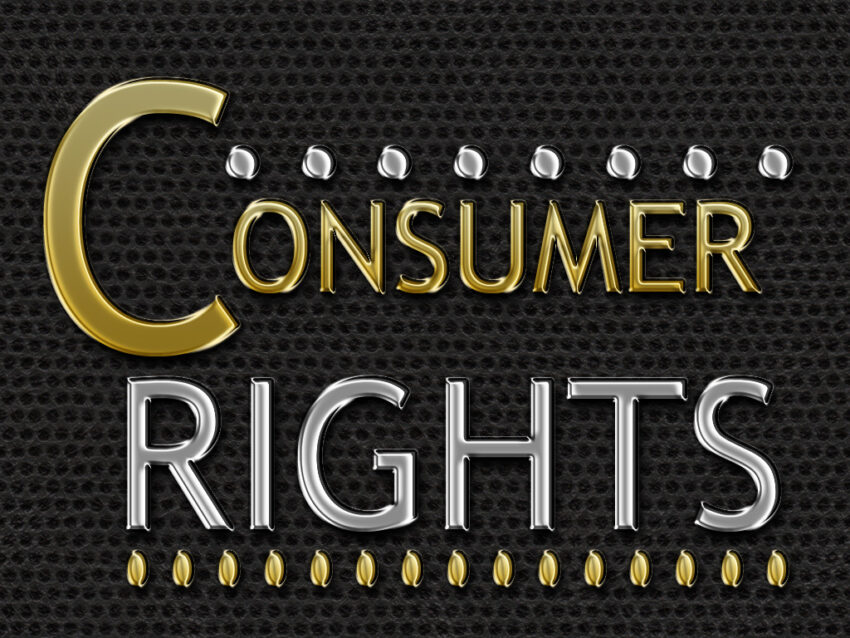As a consumer, you have more rights than you might think. Whether you’re buying groceries, signing up for a service, or disputing a charge, laws are in place to protect you from unfair business practices. The problem? Most people don’t know what those rights are.
Businesses count on that lack of knowledge to slip in hidden fees, deny refunds, and get away with misleading advertising. But once you understand your rights, you can push back—and win.
Your Right to Fair and Honest Business Practices
Companies must tell the truth about their products and services. If they make false claims, hide fees, or sell defective products, they’re breaking the law.
- False Advertising – If a company misrepresents a product (e.g., a “100% organic” label that isn’t true), you have grounds for a refund or legal action.
- Bait-and-Switch Tactics – Stores can’t lure you in with a great deal and then refuse to sell it, hoping to push you toward a pricier alternative.
- Hidden Fees – Businesses must disclose extra fees upfront. If they don’t, you can dispute the charge.
The Federal Trade Commission (FTC) enforces these rules. If a company is misleading you, file a complaint—it helps hold them accountable.
Your Right to a Refund (Even When They Say No)
Many businesses act like refunds are a privilege, not a right. That’s not always true.
- Defective Products – If something you buy is faulty, you’re entitled to a replacement, repair, or refund.
- Unauthorized Charges – If your credit card is billed incorrectly, you can dispute it under the Fair Credit Billing Act.
- Service Failures – If a service you paid for wasn’t provided as promised, you don’t have to accept the loss.
Some companies try to enforce “no refund” policies, but those don’t override consumer protection laws. If you’re being denied a refund unfairly, escalate the issue—contact your bank, the Better Business Bureau (BBB), or your state’s Attorney General.
Your Right to Safe Products
Companies must ensure the products they sell won’t harm consumers.
- The Consumer Product Safety Commission (CPSC) recalls dangerous products and holds manufacturers accountable.
- Food and Drug Administration (FDA) regulations prevent contaminated or falsely advertised food, drugs, and cosmetics from hitting the shelves.
- Auto manufacturers are required to issue recalls if they discover safety defects in their vehicles.
If you buy something that poses a safety risk, report it. Many recalls only happen because consumers speak up.
Your Right to Privacy
In today’s digital world, your data is currency. Many companies track, sell, and misuse personal information—often without your full consent.
- The Fair Credit Reporting Act (FCRA) lets you dispute errors on your credit report.
- The Telephone Consumer Protection Act (TCPA) protects you from robocalls and spam texts.
- The Children’s Online Privacy Protection Act (COPPA) limits how companies collect data on kids under 13.
Want to take control? Opt out of data sharing when possible, use strong passwords, and read privacy policies before handing over personal information.
Your Right to Dispute Charges and Contracts
If you sign up for a service and later find out it wasn’t what you expected, you’re not always stuck.
- Cooling-Off Rules – Some purchases, like door-to-door sales, have a built-in 3-day cancellation period.
- Credit Card Chargebacks – If you were scammed or didn’t get what you paid for, you can dispute the charge with your bank.
- Debt Collection Protections – Collectors can’t harass you or demand payments you don’t legally owe.
If a company tries to trap you in an unfair contract, challenge it. Many fine-print clauses aren’t legally enforceable, especially if they contradict consumer protection laws.
Stay Informed, Stay Protected
Companies rely on consumers not knowing their rights. But now you do.
Before making a big purchase, signing a contract, or accepting hidden fees, take a second to question everything. Read the fine print, push back when necessary, and don’t hesitate to report shady business practices. The more informed you are, the harder it is for companies to take advantage of you.
